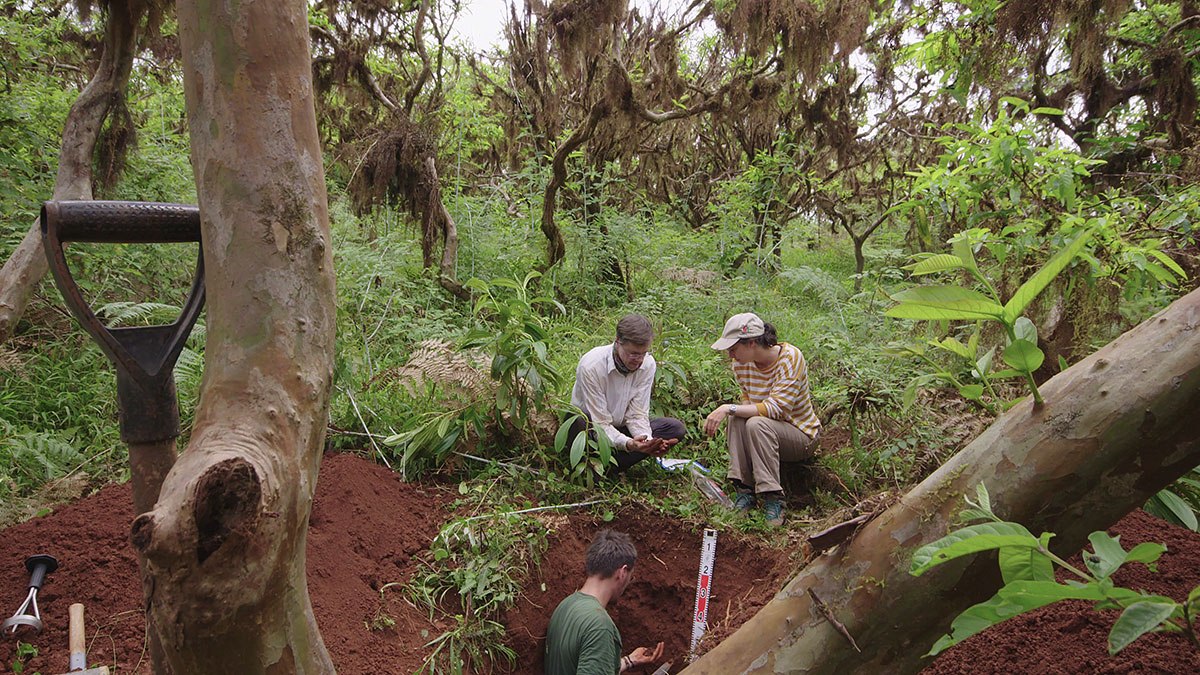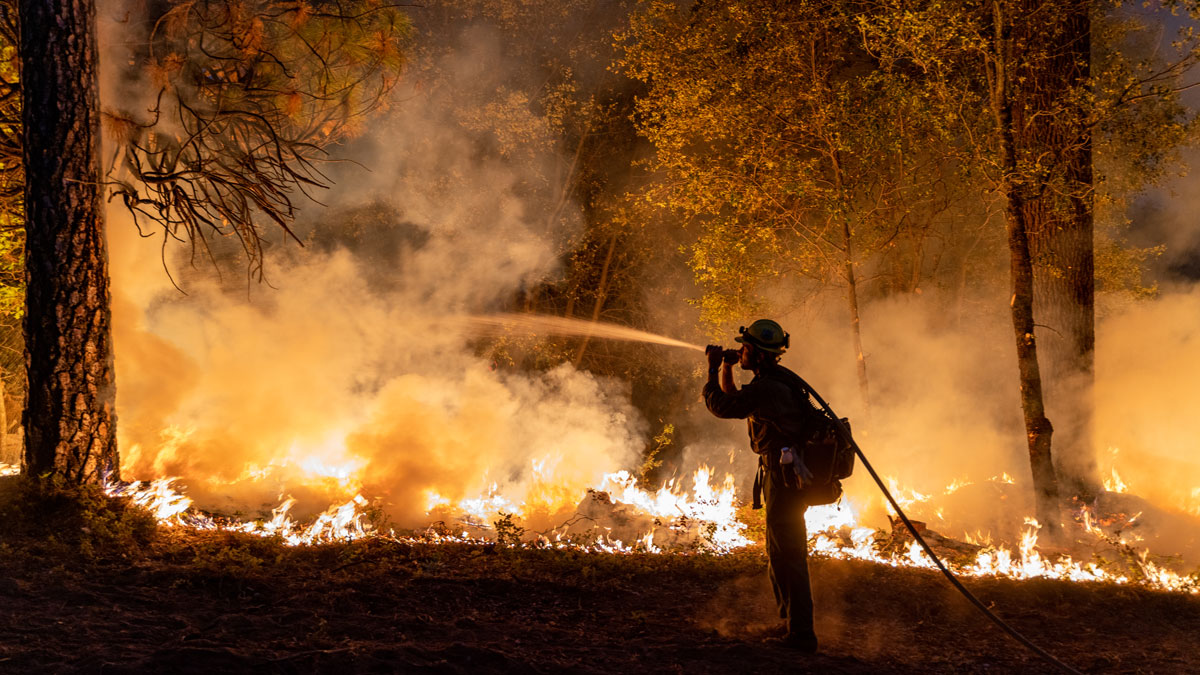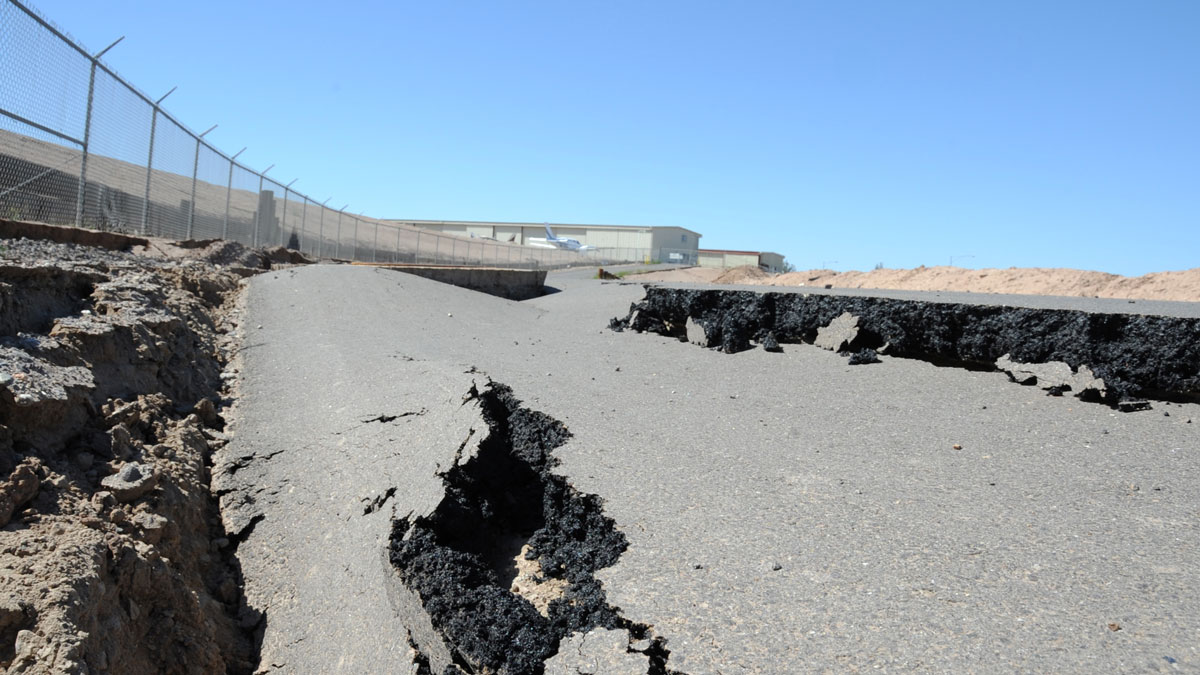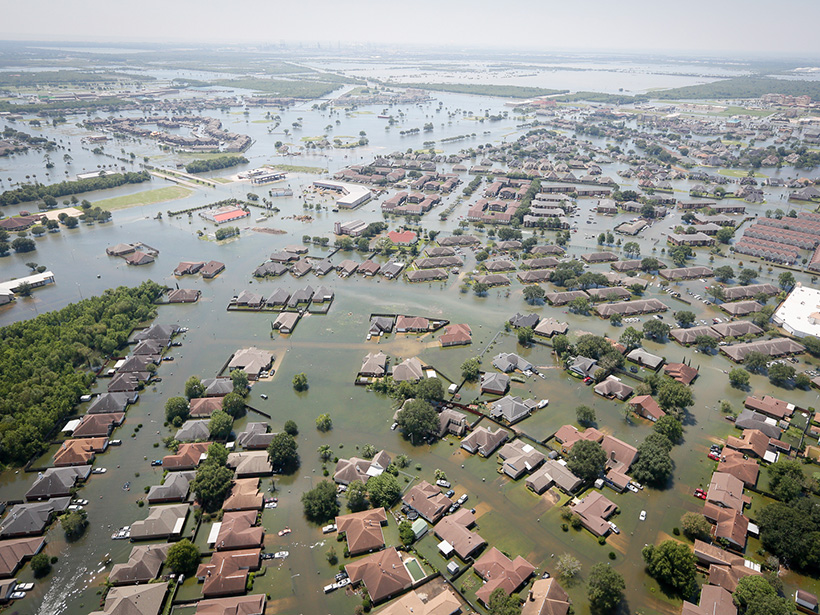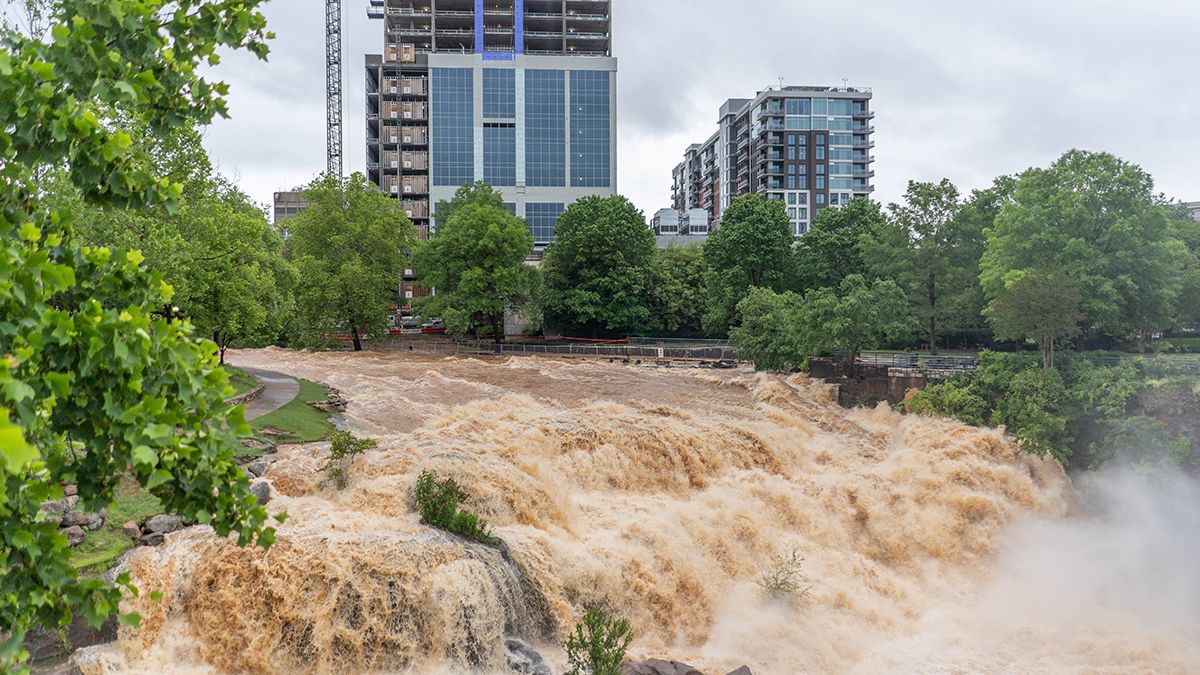New research in western India found that fertilizer based on Traditional Ecological Knowledge made soil more fertile in a head-to-head test with industrial fertilizers.
News
It’s Getting Hot Under Greenland
Meltwater draining through an area of the Greenland Ice Sheet creates enough energy to rival that of a massive hydroelectric power station, researchers say.
The Galápagos Islands: The Ultimate Outdoor Soil Science Laboratory
A new study has spurred further research into the impacts of soil formation on modern-day problems like heavy metal contamination in agricultural soils.
Warmer Nights Are Adding Fuel to Nighttime Fires
Cool, moist nights are rarer than they were a few decades ago, and that’s giving wildfires an edge over crews trying to hold fire lines.
Buscando terremotos en la ionosfera
Los terremotos pueden liberar ráfagas de energía eléctrica que se pueden sentir en la ionosfera, a kilómetros por encima de la Tierra. Sin embargo, la teoría sigue siendo controvertida.
Cuando los ríos están contaminados, las inundaciones son solamente el primer problema
A medida que las inundaciones aumentan en frecuencia e intensidad, los productos químicos enterrados en los sedimentos de los ríos se convierten en “bombas de tiempo” que esperan activarse.
U.S. Businesses May Be Required to Report Emissions, Climate Risk
The proposed rules seek to give investors more complete and standardized climate risk information. The move would bring U.S. policy closer to international standards.
Pharmaceuticals Found in Rivers on All Continents
A quarter of 258 observed rivers had unsafe levels of at least one drug. The findings raise concerns about Earth’s aquatic life and the global threat of antimicrobial resistance.
The Surprising Greenhouse Gas That Caused Volcanic Summer
Extended periods of volcanism known as flood basalt eruptions lead to volcanic winters, which are often followed by an extended period of warming. But it was more than just carbon dioxide that warmed the globe.
Just 15.5% of Global Coastline Remains Intact
Combining data from land and sea helps ecologists measure human impact.



